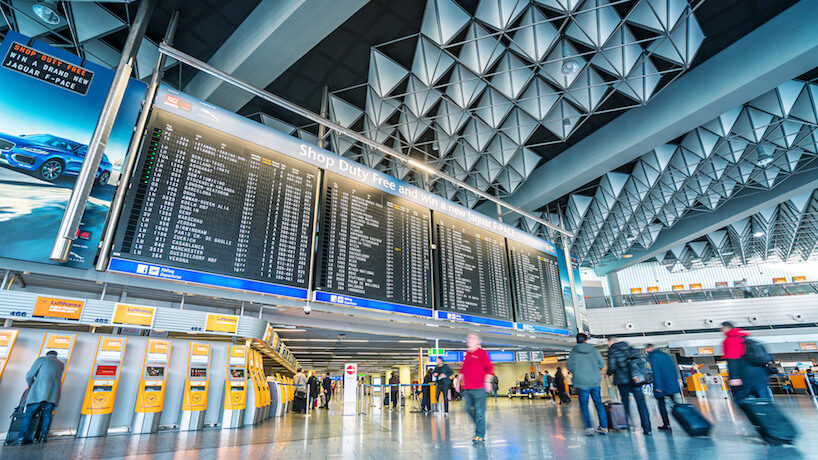As Klaus Span raced to his gate at Frankfurt Airport to catch a flight to Barcelona for ibtm world in late November, it felt like an average morning for Stuttgart area–based IBM executive. In his role as director and business unit executive of cognitive solution sales & SAP Hana on Power at IBM Corporation, Span spends approximately 80 percent of his professional life on the road. On this particular day, he had navigated two traffic jams, dealt with the frustrations of checking baggage, and made it through a hectic security line to board his flight.
It was once after he had settled into his seat and the flight took off that he started feeling ill. Flight attendants asked if any doctors on board could assess the situation, and pilots requested to land early so Span could seek more help. A series of medical tests later revealed that he had suffered a serious heart attack. The artery on the right side of his heart was fully clogged, and the left artery was 80-percent clogged.
“Putting it all together, I was 10 percent away from the ultimate truth,” Span told PCMA in an interview.
Thankfully, Span is on track toward a complete recovery. One week after the heart attack, he is in the midst of some much-needed time away from work as he continues to meet with doctors at home to outline a new approach to balancing the energetic attitude that fuels his professional success with a need to slow down. “It’s a matter of discipline,” Span said. “Also, I need to lose weight, and I need to get back in shape. Hopefully, I have the chance to recuperate and get back to 100 percent.”
Sacrificing Sleep
Another thing Span will be changing? His travel habits. “By definition, I’m a fierce and a driven guy,” Span acknowledged. “I have been traveling like that. I have pushed my schedule to the edge of being a maniac.”
Span is hardly alone if most airports’ full pre-dawn security lines are any indication. Even Delta even invested in an advertising campaign geared toward ambitious early-risers. But Lance Breger, CEO of Infinity Wellness Partners, sees a problem with this, citing “lack of sleep quality and quantity” as one of the most common business-travel pitfalls. “The most powerful repairing and revitalizing thing we can do as human beings,” Breger writes in his Business Travel Survival Pack, “is often sacrificed and suffering when traveling for business.”
“I’m one of the creatures that can exist on four or five hours of sleep, but that is counterproductive,” Span said. “I have been overtaxing my reserves. I used to be the last man standing after a full day of meetings, a dinner, and an evening at the bar.
“Now, I have to be more mindful,” Span continued, “and I will have to change the logistics of my travel for a more manageable pace. If I’m supposed to start a meeting somewhere at 10 o’clock in the morning, I’m no longer going to wake up at three a.m. for the first flight out. I will fly the evening before.”
Overcoming On-the-Road Obstacles
From site visits to conferences to sales calls, members of the business-events industry spend a lot of time on the road, and those trips can catch up with the mind and the body. “Frequent travel leads to unhealthy lifestyles while jet lag causes stress, mood swings, disorientation, sleep problems, and gastrointestinal problems, all of which impair job performance,” Tomas Chamorro-Premuzic, CEO of Hogan Assessments, wrote in a 2015 Harvard Business Review article. “Over 70 percent of business travelers report some of these symptoms even when they travel across only one time zone, and it has been estimated that jet lag recovery time may take one day for every time zone crossed.”
If you’ve experienced any of those challenges, Breger’s survival pack includes a range of other tips to help you feel better while getting from here to there and back again. Check it out here, and be sure to participate in some of Breger’s wellness activities at Convening Leaders 2018. Span said he plans to travel to Nashville for the event, too. We bet he’ll be getting there at a more humane pace.
David McMillin is a Convene associate editor.

